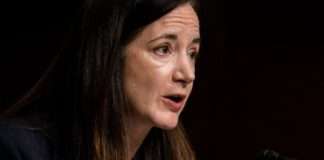The US, numerous global development banks, and other organizations launched a multibillion-dollar proposal to solve a global food security issue caused by Russia’s war in Ukraine on Wednesday.
The US Department of the Treasury announced that several global development banks are “working swiftly to bring to bear their financing, policy engagement, technical assistance” to prevent starvation prompted by the war, rising food costs and climate damage to crops.
Tens of billions of dollars will be spent on supporting farmers, addressing the fertiliser supply crisis, and developing land for food production, among other issues. The Asian Development Bank will contribute funds to feeding Afghanistan and Sri Lanka and the African Development Bank will use $1.5bn to assist 20 million African farmers, according to the Treasury.
The European Bank for Reconstruction and Development, the Inter-American Development Bank, the International Fund for Agricultural Development and the World Bank will also contribute tens of billions in the coming months and years to support food producers and address supply shortage issues.
The plan stems from a meeting that US Treasury Secretary Janet Yellen convened in April at the International Monetary Fund and World Bank spring meetings, where she called on powerful nations to look for specific ways to combat a looming crisis over food insecurity around the globe that Russia’s war in Ukraine has made even worse.
Russia and Ukraine produce a third of the world’s wheat supply, and the loss of commodities due to the war has resulted in soaring food prices and uncertainty about the future of food security globally, especially in impoverished countries.
As part of the effort to address the crisis, US Secretary of State Antony Blinken will convene meetings in New York on the sidelines of the United Nations over the next two days focusing on food insecurity. The State Department says that in 2021, more than 193 million people worldwide experienced acute food insecurity, an increase of 40 million people from the year before. As many as 40 million are projected to be pushed into poverty and food insecurity by the end of the year.
Shortages of fuel and fertiliser in many countries and accelerating spikes in food prices threaten to destabilise fragile societies, increase hunger and malnutrition, drive migration, and cause severe economic dislocation. Conflict has greatly exacerbated food security issues globally.
Yellen has arrived in Germany for a meeting of finance ministers for the Group of Seven leading economies in Bonn, Germany later this week. She met Tuesday with European Commission President Ursula von der Leyen in Brussels. Yellen said they discussed “critical issues related to energy security, Ukraine’s economic needs, and continued coordination to impose sanctions on Russia”.
Also Read: Putin Blames West For Worldwide Economic Crisis
While European nations plan to phase out Russian oil and gas, the US is pressing European Union leaders to consider possible oil tariffs and other methods of preventing Russia from benefitting from increased energy prices.
Yellen’s visit to Europe, which included time in Poland, is meant to address the effects of the war in Ukraine, an international tax plan she negotiated with more than 130 countries last year and an energy crisis contributing to high inflation worldwide.
In addition to being tasked with imposing financial sanctions on Russia, distributing coronavirus pandemic programmes still in effect and other duties, now Yellen will be responsible for ensuring the world’s most vulnerable populations don’t starve as the war in Ukraine rages on and threatens wheat and grain supplies worldwide.
SOURCE: AP








